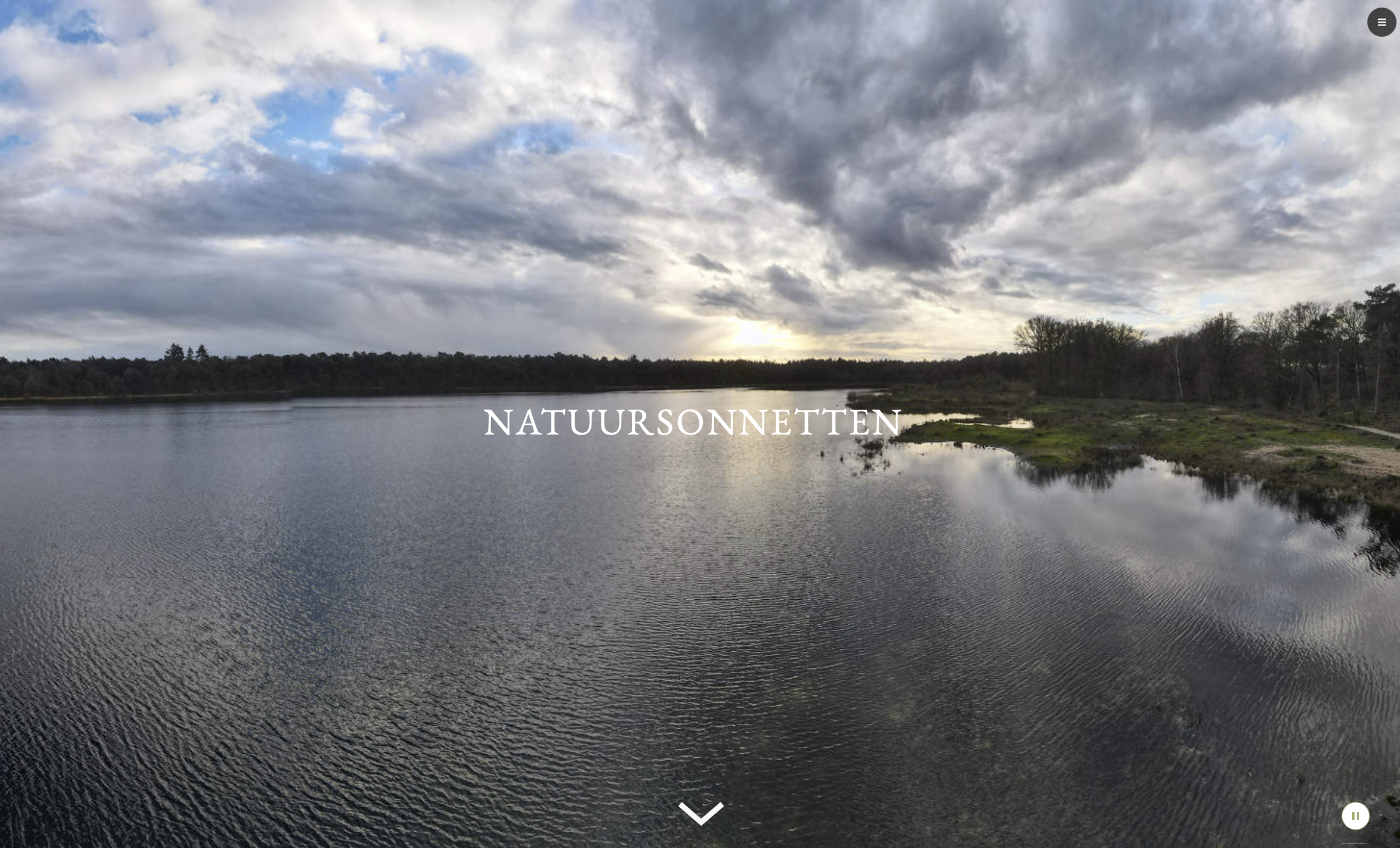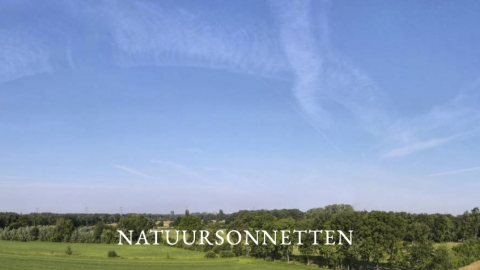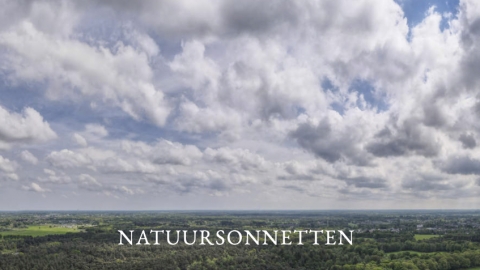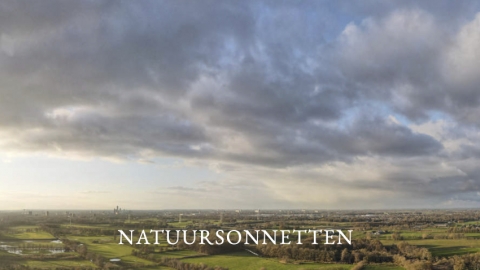
June 2024
natuursonnetten.nl
Humanity tends to position itself outside, preferably above nature. The consequences are visible. The philosopher Baruch Spinoza already warned about this in the seventeenth century. He argued that God and nature are one; after all, they represent the same reality—according to him, there is no personal God. Humanity is merely a (temporary) part of that divine nature and should conform to it; one should not attempt to correct it.
We, AHJ Dautzenberg and Rob Moonen, build upon this idea and attempt to reposition humans within nature. Or, to put it in less ambitious terms, we explore the tension between humans and nature. We turn it into a sort of game, not preaching morality. Johan Huizinga, to bring in another influential philosopher, stated that 'play' is an essential condition for producing culture. Culture develops within and as play. Thus, play is indispensable for change: the homo ludens, the playing human.
Our game begins with language, with poetry, with a sonnet. This poetic form originates from the oral tradition; a poem must be remembered and listened to, so rhythm and rhyme provide important guidance. The sonnet consists of fourteen iambic lines: two quatrains (an octave) and two tercets (a sextet). After the two quatrains, the volta marks the turn towards the sextet: a conclusion, intensification, or reversal. These limitations provide the opportunity to explore and/or sublime a theme or motif; the restricted freedoms compel thoughtful consideration and deliberation, and thus lead to surprising evocations.



